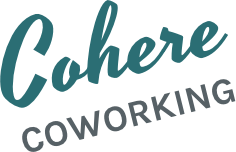Enjoy a guest post from a member of the Cohere Coworking Community-Michael Clingan.
As just one more cool benefit to being a Cohere member I’m heading to a Scenario Planning workshop (thanks Angel!) conducted by CSU’s Scenario Planning Institute.
So why is a marketing physicist like me so excited to spend a day in a workshop like that?
Because scenario planning is the replacement for strategic planning. And while strategic planning for businesses has already evolved into strategic market planning, the new reality is that all of our strategic planning and marketing planning must now be indexed to scenarios. Here’s why:
- Business environments have been changing too fast to plan a straight course out for five years like we used to. Yes, we changed our planning horizons to just three years (long enough to get business cases approved but not so long that we’d look really stupid) but that didn’t fix the problem.
- It didn’t fix the problem because not only are business environments changing, they’re often doing so chaotically. “Chaotically” doesn’t mean “randomly”, it means they’re extremely sensitive to tiny variations in conditions. In English, a change in one seemingly small and remote variable, say an exchange rate between foreign currencies, can result in huge swings in demand two or three links away in a supply or value chain.
For example, I recently did a project where one congressional committee would be making a normally small policy decision that will dramatically change an emerging multi-trillion dollar industry. A hundred other smaller but similar decisions are being made around the world. Static or long-range strategic planning from the current state is absolutely the wrong tool for any of the thousands of players that would be affected by those decisions.
Not that familiar with scenario planning? Not many are, it’s pretty new in business, not so much in the military.
Scenario planning is about creating story lines for possible futures. But instead of beginning those stories with “Once upon a time…” as most strategic planning efforts do and then extrapolating from that, scenarios begin with either “What if….?” or by taking a small trend and asking “If this goes on…?”
What I find incredibly interesting about the answers to those questions is that while scenario planning can help prepare a business for the unknown, the best immediate path forward usually requires very focused ideation to meet unvoiced customer needs. And that can lead to amazing opportunities and completely new business designs.
And scenario planning is surprisingly fun — instead of filling out SWOT templates (again), scenario planning seems to tap into some sort of suppressed creativity. In the workshops I’ve run people get into scenario planning, coming in early, skipping lunches and breaks, even staying late. By developing and planning reactions to scenarios teams seem to find new ways of working together and take more ownership for their future — by having a plan in their pocket they no longer feel buffeted by circumstances that are out of their control.
The workshop is October 20th — let me know if you want an executive summary of all the great stuff I learn there.

A marketing physicist talks about scenario planning and future of business planning http://ow.ly/2Iqow (@michaelclingan for @CohereLLC)